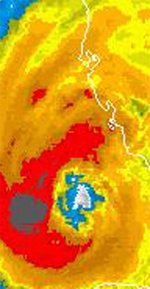Here is the official ERHC Energy statement on the approval, which was released 58 minutes after the market's close:
JDA Approves ERHC Energy and Addax Consortium for Block 4
Monday October 31, 4:58 pm ET
HOUSTON--(BUSINESS WIRE)--Oct. 31, 2005--Houston-based ERHC Energy (OTCBB:ERHE - News) announced today the company has received approval from the Nigeria-Sao Tome & Principe Joint Development Authority for Swiss-based Addax Petroleum to replace Noble Energy in its Joint Development Zone Block 4 consortium.
The JDA approval states that Addax satisfies the JDA's technical and commercial requirement for the operatorship of JDZ Block 4, and requires the ERHC-Addax consortium designate Addax as the operator, as well as for the consortium to accept all commercial and technical terms of the original award of 35 percent equity interest.
ERHC Energy announced Friday that the company had entered into a memorandum of understanding with Addax Petroleum on October 25, 2005. The parties are in the process of negotiating a participation agreement.
"Naturally, we are enthused by the JDA's recognition of Addax Petroleum as an attribute to Block 4 and our mutual goals of exploring this deepwater opportunity," said Ali Memon, ERHC Energy president and CEO. "We are committed to moving swiftly and responsibly through the negotiating process in accord with the guidelines the JDA has established."
Addax Petroleum is an international oil and gas exploration and production company currently focused on West Africa. Its technical services office is located in Geneva, Switzerland. The company commenced operations in Nigeria in 1998 when it signed two Production Sharing Contracts with the Nigerian National Petroleum Corporation for Blocks OML-123 (offshore), and OML-124 (onshore), operated by Addax Petroleum Development (Nigeria) Limited and for OPL-90 and OPL 225 (offshore) operated by Addax Petroleum Exploration (Nigeria) Limited, both subsidiaries of Addax Petroleum NV, a subsidiary of the Addax and Oryx Group. Both PSCs are operated 100% by Addax Petroleum. Addax Petroleum commenced production in 1998 in Nigeria, producing 9,000 barrels per day. After intensive drilling activity, Addax Petroleum is currently averaging 50,000 barrels per day from OMLs 123 and 124, and with the addition of the Okwori production, it is forecasted to produce in excess of 80,000 barrels per day by the year-end. For further information visit the company's website at www.addax-oryx.com.
Based in Houston, Texas, ERHC Energy Inc. is an oil and gas company focused on exploration in the Gulf of Guinea offshore West Africa. For more information, visit the company's website at www.erhc.com.
The statements in this document are forward-looking statements made pursuant to the Safe Harbor Provisions of the Private Securities Litigation Reform Act of 1995. These statements and the business prospects of ERHC are subject to a number of risks and uncertainties that may cause actual results in future periods to differ materially from the forward-looking statements. These risks and uncertainties are described on Forms 10-Q and 10-K filed with the Securities and Exchange Commission.
Contact:
ERHC Energy Inc., Houston
Shanta Mauney, 713-869-0707
The approval came with conditions, however: Among them are a JDA demand that ERHC Energy "speed up" its conclusion of joint operating agreements with its partners and accept "all the commercial and technical terms of the award and pay a $90 million signature bonus before Addax can assume the role of operator."
On the plus side, that may mean that the original Noble Energy drilling schedule that called for sinking three wells in the deep offshore block within a year of the signing of Production Sharing Contracts and payment of the signature bonus will remain in place.
The company indicated in its 2004 Annual Report that Addax has a $250 million line of credit on which it has only drawn down $65 million, and investors hope that credit line can help meet the signature bonus obligation.
The JDA also revealed that Addax already had a role in the block. The company "has a technical partner agreement with Overt Ventures, which was assigned a five percent stake in Block 4," Reuters quoted the JDA as saying.
The resolution of lingering doubts about Noble Energy has sent the stock up $0.04 in early afternoon trading on volume of 1,850,931, five times higher than recent daily averages.
Update, 10/31/05. 4:34pm EST: A block of 245,500 shares traded at $0.40 at 3:09pm, and a block of 239,400 traded above the $0.405 Ask at $0.41 at 3:42pm. The day closed with volume of 2,647,000 shares and a gain of $0.055 top $0.42, or $5,786 for the ERHC On The Move portfolio of 105,200 shares. After hours, 20,000 shares traded at the $0.415 Bid, and the Ask moved higher to $0.43.
ERHC partners Addax in Nigeria-Sao Tome oil permit
Mon Oct 31, 2005 11:44 AM ET
ABUJA, Oct 31 (Reuters) - Nigeria and Sao Tome have approved Houston-based ERHC Energy's (ERHE.OB: Quote, Profile, Research) request to replace Noble Energy with Addax Petroleum in a consortium that won oil drilling rights, authorities said on Monday.
Noble Energy withdrew from the consortium which won a 60 percent equity in Block 4 of the jointly-administered area in May, after which ERHC signed a deal with Addax giving the Swiss-based energy firm operatorship of the offshore block.
"Following the withdrawal ... and the request by ERHC to replace Noble Energy with Addax Petroleum in the consortium, the JDA has since reviewed and accepted the request," the Joint Development Authority (JDA) said in a statement.
The JDA, which administers the Nigeria-Sao Tome and Principe Joint Development Zone in the Gulf of Guinea, said the new consortium must accept all the commercial and technical terms of the award and pay a $90 million signature bonus before Addax can assume the role of operator.
The ERHC/Addax consortium must also accept the production sharing contract timeline and agree to speed-up joint operating agreement negotiations with other shareholders, the JDA said.
Addax, which already operates four licences in Nigeria, has a technical partner agreement with Overt Ventures, which was assigned a five percent stake in Block 4, the JDA said. Nigerian Conoil (NTOL.LG: Quote, Profile, Research) and two small Nigerian companies also have small stakes in Block 4.
Other energy firms that won rights to exploration blocks in the second licensing round in May include Devon (DEV.N: Quote, Profile, Research) and Anadarko (APC.N: Quote, Profile, Research).
The JDA has awarded five offshore blocks in the Gulf of Guinea, which has become one of the world's exploration hotspots since a series of huge oil finds in the last 20 years, but the process has been marred by delays, bickering and accusations of corruption.
Nigeria, the world's eighth biggest oil exporter, and Sao Tome and Principe hope jointly to receive $400 million in signature bonuses for the five blocks.
Reuters failed to mention that Devon has also backed away from the JDA. In a more accurate report, UpstreamOnline. whose Barry Morgan has covered the story consistently, also weighed in:
JDA okays Sao Tome pairing
By Upstream staff
Nigeria and Sao Tome's Joint Development Authority (JDA) has approved Houston-based ERHC Energy's request to replace Noble Energy with Addax Petroleum in a consortium that won oil drilling rights.
Noble, which won a 60% equity in block 4 of the jointly-administered area in May, withdrew from the consortium prompting ERHC to sign a deal with Swiss-based Addax, ceding operatorship of the Gulf of Guinea block.
The JDA said the new consortium must accept all of the terms of the award and pay a $90 million signature bonus before Addax can take on the role of operator.
The ERHC/Addax consortium must also accept the production sharing contract timeline and agree to accelerate joint operating agreement negotiations with other shareholders.
Addax, which already operates four licences in Nigeria, carries a technical partner agreement with Overt Ventures, which was assigned a 5% stake in block 4, according to Reuters.
Nigerian Conoil and two small Nigerian companies also hold small stakes in block 4.



